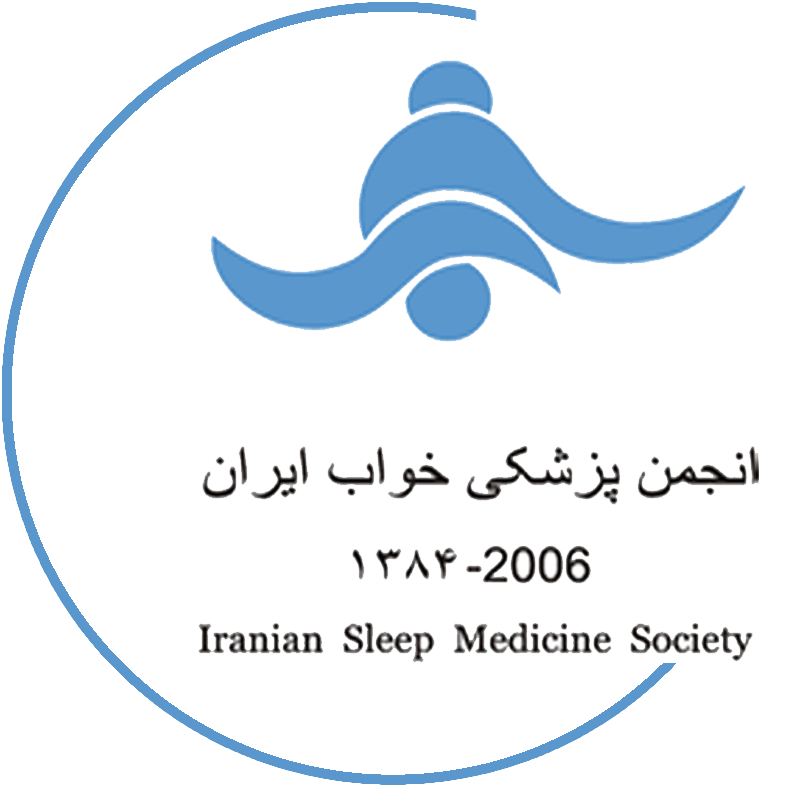Factor Analysis and Validation of Sleep Health Scale in Nursing Context
Abstract
Background and Objective: Sleep health can be defined as a multidimensional pattern of sleep-awakening that is consistent with individual, social, and environmental needs and its absence endangers physical and mental wellbeing. The objective of the present study was to validate the Sleep Health Scale (SHS).
Materials and Methods: The population for this study consisted of all nurses in Arak Province, Iran, including 130 participants who were selected using the available sampling method (simple sampling). Data collection was based on the SHS by Buysse, which resulted in 120 completed questionnaires. SPSS software was used for exploratory factor analysis (EFA), reliability, and correlation between questions, and AMOS was used for confirmatory factor analysis (CFA). This scale was translated from English to Persian and then was back-translated from Persian to English. The questionnaire was examined in terms of cultural sensitivities, clarity of questions, conflicts, and errors in meaningful-ness by a panel of experts.
Results: Cronbach’s alpha coefficient for the questionnaire was 0.89; hence, the questionnaire was reliable. Factor loadings’ examination using EFA and CFA showed 0.77 and 0.80 for the questions and this confirmed an acceptable construct validity. All items showed acceptable correlation (0.82 to 0.84). The results of test-retest reliability showed stability over time (r = 0.83) for sleep health assessment.
Conclusion: The Persian version of the questionnaire has acceptable validity and reliability and can be used for sleep health assessment, along with other questionnaires.
2. Knutson KL, Phelan J, Paskow MJ, et al. The National Sleep Foundation's Sleep Health Index. Sleep Health 2017; 3: 234-40.
3. O'Leary K, Small BJ, Panaite V, et al. Sleep quality in healthy and mood-disordered persons predicts daily life emotional reactivity. Cogn Emot 2017; 31: 435-43.
4. Del Rio Joao KA, Becker NB, de Neves JS, et al. Validation of the Portuguese version of the Pittsburgh Sleep Quality Index (PSQI-PT). Psychiatry Res 2017; 247: 225-9.
5. Ghoreishi A, Aghajani AH. Sleep quality in Zanjan University medical students. Tehran Univ Med J 2008; 66: 61-7. [In Persian].
6. Nunns H. Sleep deprivation in intensive care units. Anaesthesia 2014; 69: 1296.
7. Rigotti MA, Ferreira AM. Nursing interventions to the patient with pain. Arq Cienc Saude 2005; 12: 50-4.
8. Ghaljaei F, Naderifar M, Ghaljeh M. Comparison of general health status and sleep quality between nurses with fixed working shifts and nurses with rotating working shifts. Zahedan J Res Med Sci 2011; 13: 48-50. [In Persian].
9. Ziaei M, Ghanbari A, Barzegar Shengol A, et al. Comparison of sleep quality and its relationship with fatigue severity between day and night workers in sugar factory in 2011. J Rafsanjan Univ Med Sci 2013; 12: 365-76. [In Persian].
10. Brandolim BN, Martins RIS, Jesus SN, et al. Sleep health assessment: A scale validation. Psychiatry Res 2018; 259: 51-5.
11. Gall MD, Borg WR, Gall JP. Educational research: An introduction, 6th ed. White Plains, NY: Longman Publishing; 1996.
12. Becker NB, Martins RI, de Neves Jesus S, et al. Sleep health assessment: A scale validation. Psychiatry Res 2018;259:51-5.
| Files | ||
| Issue | Vol 4 No 3-4 (2019): Summer-Autumn | |
| Section | Original Article(s) | |
| Keywords | ||
| Sleep; Nursing; Validation study; Factor analysis; Statistical; Reproducibility of results | ||
| Rights and permissions | |

|
This work is licensed under a Creative Commons Attribution-NonCommercial 4.0 International License. |



